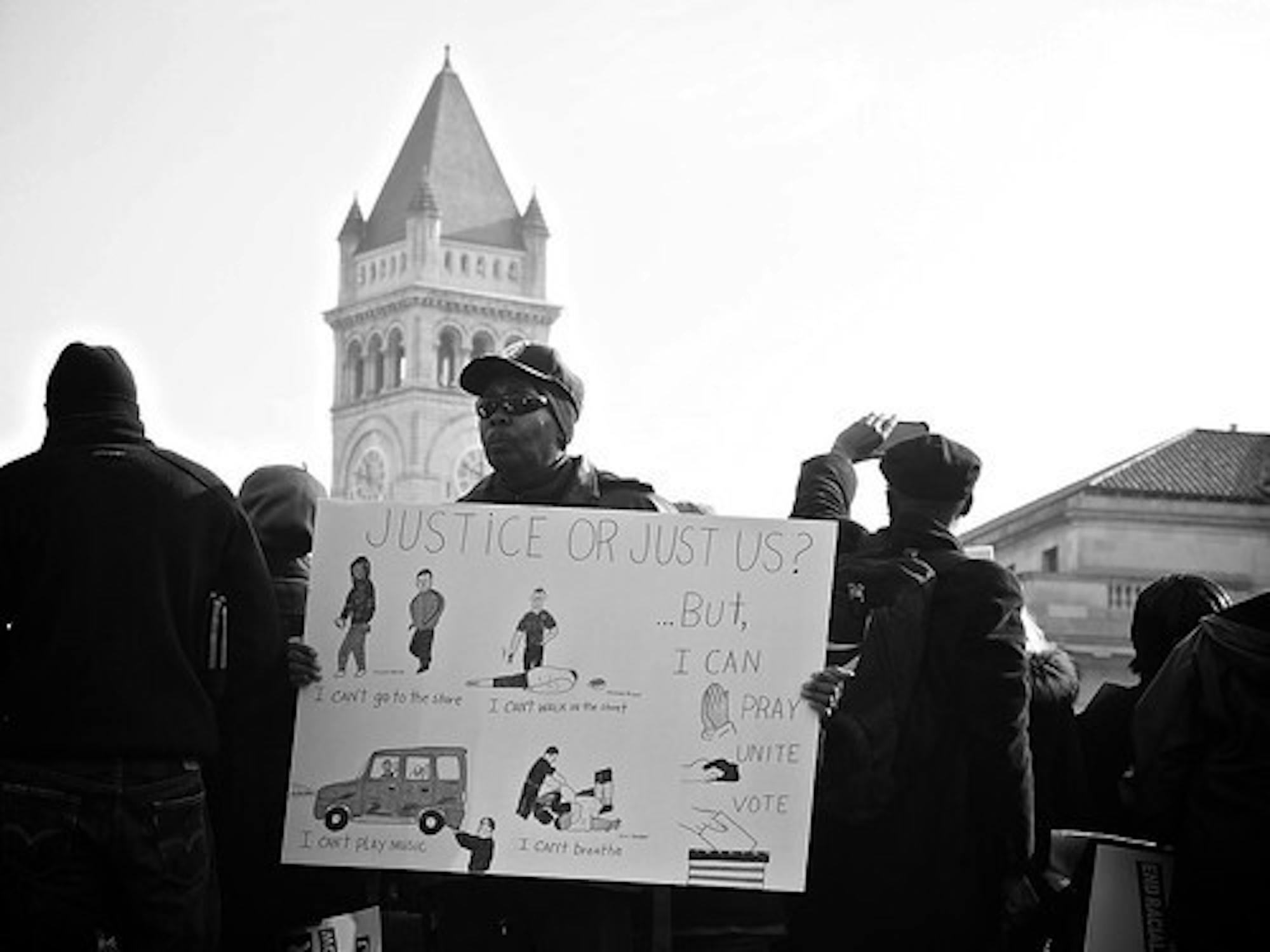
The great February. Quite distinct from the rest of the months. 28 days! These short 28 days are usually known as Black History Month. This joke circles around my community of Black friends every year. But although this joke is quite prominent, there is something we should pinpoint and genuinely focus on when recognizing Black history. Black History Month does very little for the Black community and many major corporations use this month as a way to commodify Black people and their struggle.
Black History Month was introduced in 1915 by Carter G. Woodson, also known as the “Father of Black History.” This initial stepping stone later led to being officially recognized in 1976 by former President Gerald Ford to celebrate Black history on a nationwide scale.
However, when I think about how Black history is being celebrated, I often think about how many people are introduced to the month through the education system. Maya Ashe (23Ox) recollects her childhood memories about initially knowing what Black History Month was from school.
“I remember when I was younger I told my mom that it was cool we had a whole month to ourselves and then she said ‘That is because white people have the rest of the year.’ It really puts a lot into perspective for me,” said Ashe.
I vividly remember being first introduced to Black History Month in elementary school. I was so fascinated knowing that I was learning about people who look like me such as Martin Luther King Jr., Rosa Parks and Madame C.J. Walker. I remember every year in one of my history classes watching “Our Friend Martin,'' which gives an animated overview of Martin Luther King Jr.'s rise to being such a stepping stone in the civil rights era. However, this movie was played to me almost every year I was in elementary school. And it somehow got frustrating. Why was Martin Luther King Jr. the only person being shown? Weren’t there other important Black people?
While I didn't understand it back then, today, I now know the reason for the constant appearance of Martin Luther King Jr. during Black History Month. He was the most palatable for white people. White people, especially in school systems, have set up the curriculum during Black History Month so that no one radical like Claudia Jones, C.L.R. James and Kwame Ture would be exposed. Instead, it would be the same three Black people, which does not give a fair representation of Black people. In a sense, we are hidden, and white people pick and choose the Black people we will learn about, with no regard for the opinions of Black people. In layman’s terms, they hide history.
For so long, Black people have only wanted freedom from the chains of colonialism, and each time we long for that freedom and expression, we do not get it whatsoever. In fact, we get the opposite of what we wanted. Black History Month was initially a month created to recognize Black people from various backgrounds and shed light on Black issues, but it has been commodified. It has been turned into this month of “fixing” all the problems that America and white people have done to Black people. It is practically a way of shutting up Black people and letting them be noticed for one month.
So many corporations such as Bath & Body Works not only thrive off of Black History Month but ignore the message at hand. Just recently, Bath & Body Works has faced backlash for the recent Black History month collection they released. Instead of making a genuine effort to help the Black community, Bath & Body Works threw tribal print and positive words on products to show their supposed allyship. Even more appalling, their attempt at support was merely a watermelon-scented candle spotlighting the Black History Month collection display. Yet, I am not even surprised at the performative activism covered in racist tactics. We need to recognize Black people. Not only the Black people from the past but also the Black people now. There are so many issues obliterating Black communities and instead of receiving performative activism, we actually need change.
This starts from introducing more Black people instead of the same three in school. This starts from eradicating the school-to-prison pipeline. This starts from decreasing the rates Black people are killed by police officers — Black Americans are 3.23 times more likely than white Americans to be killed by police. In order to heal the racist tensions crippling our society today, we need to work to end these systemic problems rather than profiting from the commodification of Black humanity.
I believe Black History Month is problematic. Living in a predominantly Black community for the majority of my life, I have seen firsthand how little Black History Month has done for the Black community. What have these major corporations done to support Black communities instead of sticking the Black History Month logo on products? Nothing, whatsoever. Black History Month is just filled with performative acts from the government and corporations.
However, this should not stop us from teaching people about Black history. We can make Black History Month meaningful by not solely centering it around Black trauma. We should celebrate Black futures, support Black-owned businesses, volunteer in Black communities, donate to Black charities and amplify Black voices.
“The decades of Black trauma are important to learn about so that we know why we are where we are today, and how the nation has used and abused Black bodies,” said Makalee Cooper (23Ox).
Together as a community, we can use this month to not only recognize Black historical leaders but also help Black communities. Black History Month should not be the only time when Black people are recognized — we deserve recognition all year.
Aisha Tunkara (23Ox) is from Atlanta, Georgia.





